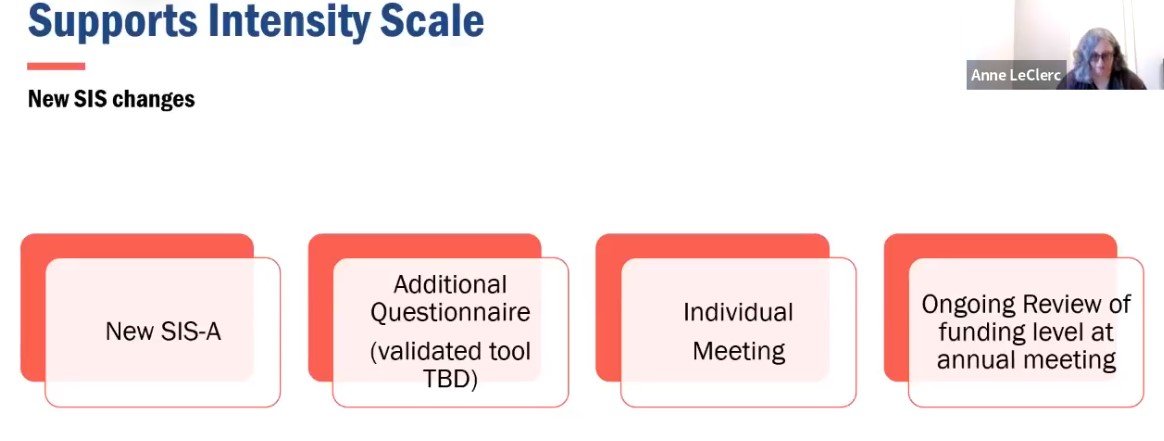Employers Advancing DD Worker Raises While State Updates Reimbursement System
/By Gina Macris
Most providers of services for adults with developmental disabilities in Rhode Island have passed along wage increases enacted by the General Assembly for the fiscal year that began July 1, even though the state’s developmental disabilities agency has not yet programmed the higher rates into its reimbursement system.
The raises, negotiated between state officials and representatives of some three dozen private provider agencies under pressure from the U.S. District Court, increase hourly wages for direct care workers by more than $2, from about $13.18 to an estimated $15.75 per hour, depending on variations in payroll taxes and other employer costs related to employment.
The General Assembly approved hikes of well over $3 for supervisory personnel, from $18.41 to $21.99 an hour.
Providers who can afford it are “floating” the pay hikes to staff for a few weeks with the assurance that they will be reimbursed when the increases are fully implemented by the state’s Department of Behavioral Healthcare, Developmental Disabilities and Hospitals (BHDDH), said Tina Spears.
“Providers are desperate for staff,” said Spears, executive director of the Community Provider Network of Rhode Island (CPNRI), a trade association representing about two dozen private agencies. The worker shortage, exacerbated by the pandemic, has increased employers’ overtime costs and forced many supervisors to provide direct care.
The General Assembly set aside $39.7 million in the BHDDH budget for the raises and “associated payroll costs,” which BHDDH says should put the “minimum” pay at $15.75 an hour for direct care workers and $21.99 an hour for supervisors.
But providers say the mathematical formula BHDDH uses to calculate the minimum pay doesn’t allow enough for the added payroll taxes employers must pay every time they hire a new staffer or give someone a raise.
Spears said providers are making every effort to pass on as much of the extra money as possible to their employees. Everyone should be making at least $15 an hour, she said.
In a newsletter last week, BHDDH officials encouraged those “self-directed” individuals or families managing a loved one’s individualized program to advance raises to the workers they hire even though their funding authorizations have not yet been adjusted to reflect higher rates. Self-directed individuals, who do not have overhead, pay more than the provider agencies but don’t offer benefits.
It’s not yet clear whether the pay hikes will be enough to cut into the workforce deficit, one of the reasons holding BHDDH back from implementing requirements of a 2014 consent decree mandating that adults with developmental disabilities be integrated in their communities.
Massachusetts and Connecticut both pay higher hourly rates than Rhode Island for similar jobs, one factor that is said to contribute to the state’s worker shortage.
A consultant has estimated that Rhode Island needs at least 1000 more individuals working with adults with developmental disabilities to implement the consent decree. The worker shortage is one of several reasons the Chief Judge of the U.S. District Court, John J. McConnell, Jr., has scheduled a week-long hearing in mid-October to gather evidence for holding the state in contempt for its failure to overhaul its developmental disabilities system as required by the consent decree.










